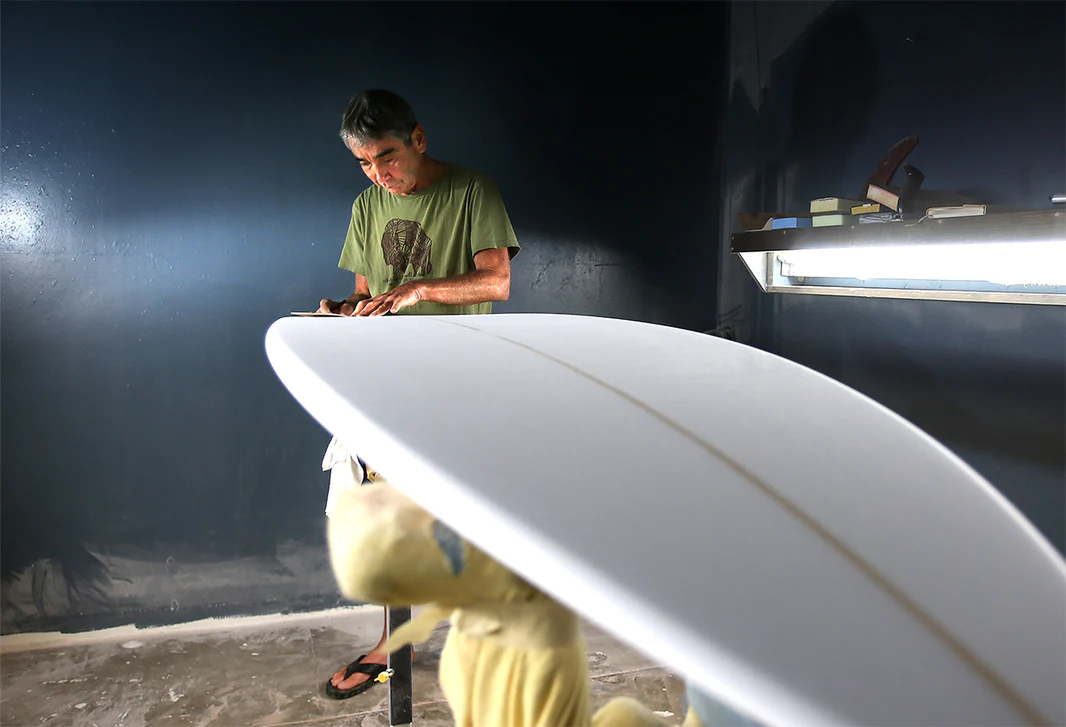Description
Gerry Lopez Something Fishy – Fusion HD – FCS II – 4 Fin
Like going back in time, while knowing everything you know now. Back in the early 1970s, Steve Lis created a surfboard design, The Fish, that has endured through the decades and is as valid today as it was almost 50 years ago.
The Fish design has gone through just about every permutation and probably most shapers. The Something Fishy is a blend of Steve’s old template with Gerry’s take on the rails, bottom shape, and rocker. Gerry’s Something Fishy is still fast as heck, but the updates give Gerry’s version a bit more maneuverability and make the board easier to control.
We like how it works and, if you are a Fish lover, we think you might too. We loved the Something Fishey so much that we decided to build it in our exclusive Fusion HD construction.
This lightweight and responsive build is great for high-performance ripping, down-the-line projections, and other aggressive surfing techniques. Overall we feel The Fusion HD construction enhances the characteristics already found in the Something Fishy.
| Dimensions | Volume |
| 5’4 x 21.5” x 2.4” | 33.1 ltr |
| 5’8 x 21.75” x 2.4” | 35.5 ltr |
| 5’11 x 21.75” x 2.5 | 38.8 ltr |
| 6’2 x 22” x 2.5” | 41.2 ltr |
| 6’6 x 22.25” x 2.75” | 44.2 ltr |
Fusion HD
Surftech’s version of a standard EPS and epoxy surfboard construction. A closed cell EPS core containing a wood stringer is layered with E-glass and biax glass for a light weight performance board with a lively feel. All Fusion HD boards are hand finished.
- FUSED CELL EPS CORE // Closed-cell EPS core provides more response + flotation
- CLEAR HD-EPOXY RESIN // Epoxy resin system with high thermo-mechanical performances
- HIGH-QUALITY E-GLASS FIBERGLASS // E-glass has the highest strength-to-weight ratio available
- FULL BIAX DECK PATCH (45° / -45°) // The Biax fiberglass distributes power + protects from dings
- WOOD STRINGER // Distributes power + adds pop + adds break strength
- FCS II FIN BOXES // Takes just seconds to insert and remove the fins
- HAND-FINISHED // Machine-shaped, hand-laminated, and hand-finished
MR Pipeline
“WAVES KEEP COMING, THAT’S THE ONE THING YOU CAN COUNT ON IN LIFE”
Gerry Lopez grew up in the extraordinary place that was Hawaii in the 1950s and 1960s. He played a part in the shortboard revolution of the late 1960s and early 1970s. He experienced the awe, fear, and ultimate satisfaction of finding the tube in the early days at the Pipeline. He traveled for surf throughout the world: to the original surf camp at G-Land, the exotic islands off Sumatra, and especially to the magic island of Bali, Indonesia – before it became a popular surf destination. He experienced the beginnings of windsurfing on Maui, the early years of snowboarding and tow-in surfing at Jaws. Fast forward to today and Gerry Lopez is shaping some truly unique boards that keep his surfing journey moving forward. This collection of boards represents the quiver that he takes around the world to surf the ultimate breaks.





